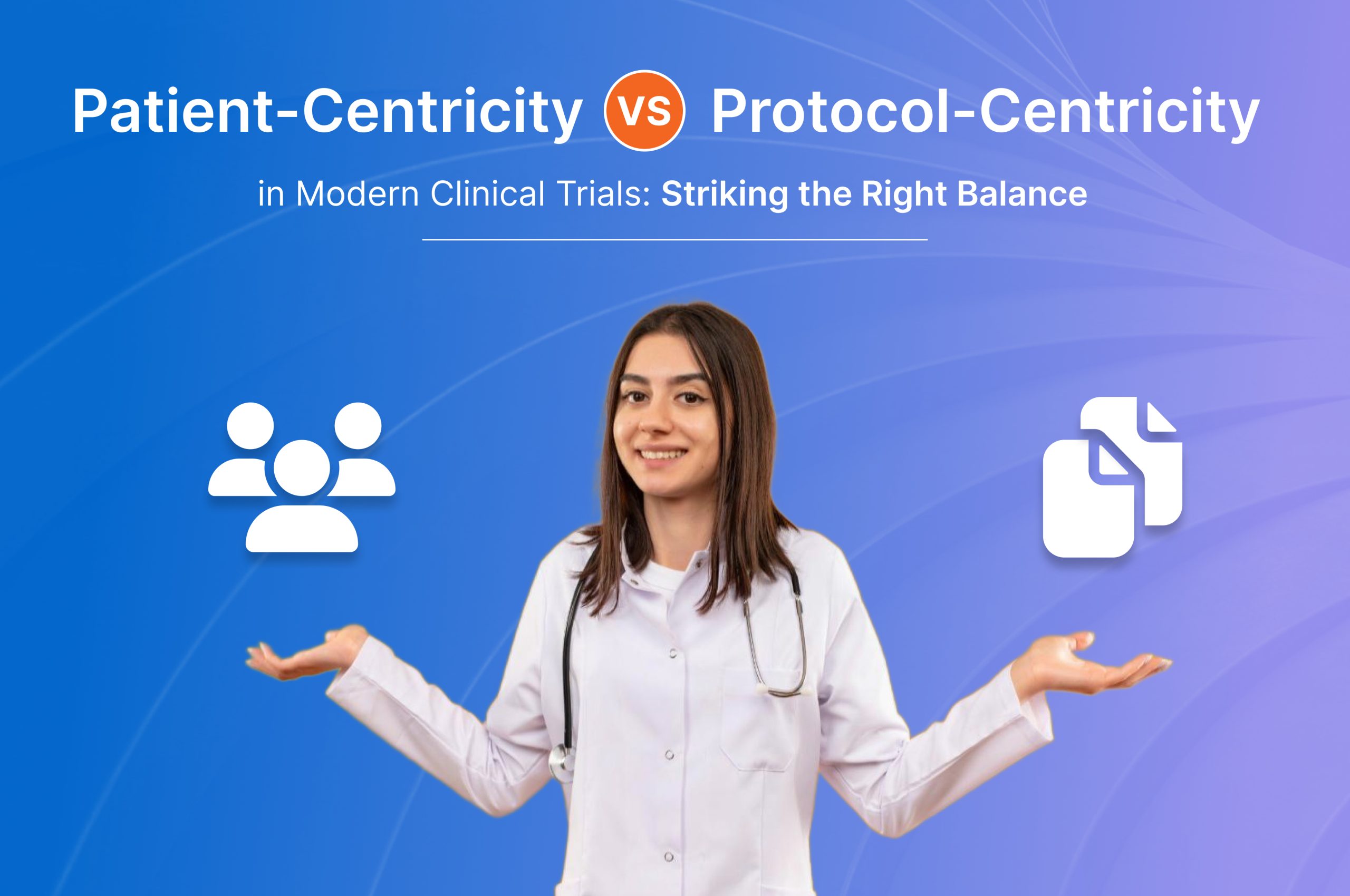In conversation with Mr. Hiren Thakkar, MD, Octalsoft
As we settle into 2023 with a refreshed mindset, we take inventory of what is important and focus on our goal to continuously make sure that we are maximizing the impact of data on the global disease burden with more inclusive, patient-friendly trials. Speaking to Mr. Hiren Thakkar, MD, Octalsoft, we get down to the nitty-gritty of the future of clinical trials, the imapct of RWD, Industry trends in APAC, customer-centricity, trends, and regulatory frameworks.
Excerpts from the Interview follow-
What will the future of clinical trials be in the next few years?
Hiren: Pharma is starting to look into more modern clinical trial methods and technologies. Decentralized trials, for instance, are being considered by many as a means of expanding the pool of applicants and increasing the accessibility and fairness of trials for more individuals. According to Forbes, during the pandemic retail pharmacies supplied immunizations and opened the way for more services, the retail pharmacy model is also growing in the US.
The utilization of sources like electronic health records (EHR) and connected devices is continuing to grow, making it possible for businesses to gather more anonymous, excellent real-world evidence. The market will be significantly affected by the use of AI and machine learning on this data, particularly in areas like pharmacovigilance. Patients and physicians will continue to make use of these developments as new therapies hit the market more quickly to obtain more precise safety information.
In order to meet the demands of several new clinical trials contracted in Asia, we at Octalsoft anticipate the growth of virtual CROs and their usage of platform technology. Overall, we observe a greater rate of clinical trial recruitment in the region than in Europe, North America, or Australia. The number of clinical trials that have been filed in Asia has lately increased seven-fold, according to "Clinical trials in Asia: A World Health Organization database analysis", Japan registered more trials than any other Asian nation (30.8%). The effectiveness of these trials will be greatly influenced by technology, which may also be a big role in this growth due to lower trial expenses and a larger patient pool.
Organizations that successfully mix patient-centric strategies with cutting-edge technology will have a better chance of succeeding and assuming a leadership position in the sector.
How will real-world data (RWD) impact clinical trials?
Hiren: In making decisions, real-world data (RWD) will be essential. Drug companies' approaches to all parts of the process, including discovery, understanding safety in real-world situations, go-to-market strategies, and how they conduct their clinical trials, can be shaped by the insights gained from RWD mixed with clinical research data. As was previously mentioned, organizations will be able to gather more substantial amounts of high-quality real-world evidence to better inform clinical trials thanks to sources like EHRs and connected devices.
What industry trends will we see specifically in APAC?
Hiren: Recent reports indicate that APAC remains a potential region for clinical trials. This is a chance for CROs who are just entering the market as well as for sponsors who want to profit from growth. We anticipate that as this expansion continues, businesses will turn to cutting-edge platform technologies that can support all facets of clinical trials and offer financially viable business models. When sponsors hunt for broader participant pools, this expansion may also result in an increase in international research and collaboration. Decentralized Phase I trials in APAC increased by 60% between 2017 and 2022, compared to an industry average of 10% to 20%, according to "Growth Opportunities: The Clinical Trials Landscape of Asia-Pacific".
What do companies need to do to adopt a more “consumer-centric” approach to patient care and engagement?
Hiren: To move towards a consumer-centric approach where patients have choices over their involvement in trials, there needs to be a transformation within companies. Examples include giving patients the option to submit intake data remotely, having patients wear sensors to transmit clinical data, and exchanging feedback via televisits. Leadership must be ready to support these changes and be open to considering new approaches. Many organizations were influenced by COVID-19 to conduct trials differently, leading to the imperativeness of a more consumer/patient-centric approach.
What is the biggest roadblock to achieving better patient engagement?
Hiren: Accessibility is one of the main obstacles to patient participation. Since many patients live far from the trial site, there are problems with both recruitment and engagement. However, with the new decentralized clinical trial models, this is being handled in a variety of ways. In addition, electronic engagement technologies like chatbots make it incredibly simple and effective for patients to interact with their carers. For instance, electronic patient-recorded outcomes via a wearable device make it easier to collect data from a patient when they are at home.
The pandemic accelerated the adoption of several different approaches to clinical trials. In APAC, which of these approaches is taking hold? What is the biggest trend, challenge, or market factor that you are tracking?
Hiren: The adoption of a technology-enabled, decentralised clinical trial approach with a "patient-centric" focus has been sparked by the past few years' challenges to the status quo. The majority of the industry has decided to keep using more recent clinical trial models and technologies as a result of the reality of this shift. Patients must be given the option of participating in clinical trials in person, online, or through a combination of both methods, as patient optionality is the order of the day right now. Future modifications to clinical trials and their models will be driven by this.
Can you address the growth in CROs and the clinical trial market in Asia i.e. what is driving this growth and how will technology meet the demand?
Hiren: The need for "globally accepted" solutions to conduct clinical trials is driven by local regulations in APAC nations, which are constantly changing. Additionally, the region's expanding health challenges, such as diabetes and hepatitis, are driving the need for more trials to be conducted. Government funding is also rising, and APAC is emerging as a viable option for conducting clinical research trials. To handle the difficulties and complexities of managing clinical trials in a global economy, forward-thinking CROs are implementing purpose-built technology that makes use of a standard platform. In a more competitive market, these will boost operational performance and set themselves out.
Speaking of clinical progress, diversity is a subject that hasn't been on the health agenda for very long. How do you see this affecting the regulatory framework and being more than simply a talking point?
Hiren: Clinical trial diversity is a complicated topic. The more diverse the population pool, though, the more diversified data may be used to teach researchers more broadly about the variations between the various groups. For clinical trials to advance health equity, it is essential that participants come from a variety of backgrounds. Patients who will use the medicinal items should be represented in clinical trials. This is crucial since various age groups, genders, races, and ethnicities may respond to medical items differently. There is a higher likelihood of establishing gaps in our knowledge of diseases and conditions, preventative factors, and treatment effectiveness across populations if the pool of trial participants does not represent the people most impacted by a specific disease, condition, or behavior.
It will be interesting to watch how governing bodies decide to handle the issue of diversity and how it affects the legal system. In order for healthcare professionals to learn whether the current vaccines are effective against those strains and public health officials to more accurately predict whether hospitals will be overrun with new patients, Oracle collaborated with the University of Oxford on a system that aids in early variant identification during the COVID-19 pandemic. A better public health policy will generally result from better information. The current regulatory framework with regard to clinical trials will probably alter if new public health policies are implemented..
Also, there will be an increase in data-based communication, allowing healthcare facilities to get data via wearable technology and home monitoring systems. Also, by using this two-way channel, clinical trial researchers will be able to reach out to communities that are farther away from a clinical site, giving them access to a far more varied pool of participants and more details on these populations.
Access to trials may be hampered in many communities by factors like distance. Do you see the integration of remote trials as a feasible opportunity?
Hiren: Certainly, it is not only possible, but the COVID-19 pandemic has swiftly shown that some parts of decentralized clinical trials might in fact be successful. Without having to physically visit the site each time a data point needs to be collected, patients can take part in trials with the correct technology and infrastructure in place. As we've previously discussed, patients may have a better and more effective experience than they would under conventional clinical trial models thanks to the emergence of electronic patient-reported outcomes, such as with wearables and other devices, combined with better communication infrastructure, like chatbots.
Another current issue, health equity, has diverse definitions around the world. What is health equity, and how is Oracle Life Sciences defining and pursuing it across the Asia Pacific?
Hiren: The fair and just participation of various populations in the development, execution, and analysis of clinical research studies is referred to as health equity in clinical trials. In the past, diverse groups, especially those from marginalized communities, have not always been included in clinical trials, which might limit the generalizability and applicability of the research findings.
Health equity is significant in clinical trials for a number of reasons. First, by excluding varied populations from clinical trials, we risk missing significant differences that could have an impact on patient outcomes. Diverse communities may respond differently to medical interventions and treatments. We can also increase current health inequities and perpetuate health disparities by omitting disadvantaged communities.
Researchers can try to make sure that their study designs and protocols are inclusive and available to all participants in addition to recruiting volunteers. For instance, when establishing study protocols, they may need to take into account variables like transportation, childcare, and language challenges. To meet the demands of different participants, they might also need to adapt their strategy.
How much is the industry's effort to increase the number of clinical trials hampered by issues with pricing and market access for novel products?
Hiren: The industry's efforts to conduct more clinical studies are not hindered; rather, they are developing. Pharma, CROs, and sites are already showing more interest in a digital platform that makes it possible to set up and carry out trials more rapidly and effectively. Oracle anticipates that its technologies will eventually help to increase the number of trials. We acknowledge the complexity of the healthcare industry, including clinical trials, but with more user-friendly solutions, we want to boost participation rates and ultimately improve results.
There is a lot of anticipation and excitement surrounding CAR-T, but how can you balance patients' expectations with the current scientific landscape?
Hiren: Healthcare experts and researchers are attempting to resolve complicated problems in this area. Using our tools, we facilitate numerous discovery procedures. We are optimistic that as technology advances and data availability expands, cures and medications will materialize more quickly to assist individuals in need.
**
Mr. Thakkar signs off with a parting word.
Hiren: The future of clinical trials holds tremendous promise for advancing medical research and improving patient care. The integration of big data, virtual and decentralized trials, AI and ML technologies, adaptive trial designs, and patient engagement will reshape the landscape of clinical research, making it more efficient, inclusive, and impactful.
Clinical trials have long been the gold standard for testing the safety and efficacy of new medical treatments, playing a vital role in advancing healthcare. However, the landscape of clinical trials is rapidly evolving, driven by technological advancements, changing regulations, and a growing need for more efficient and patient-centric approaches. As we step into the future, a new era of clinical trials is emerging, promising exciting possibilities and transformative outcomes.
At Octalsoft, we have already begun stepping into the future with our comprehensive suite of eClinical software solutions. Do you want to know how you can overcome existing clinical trial challenges, accelerate the development of innovative therapies, and usher in a new era of evidence-based medicine that benefits patients worldwide with Octalsoft? Book a Demo with us Now!



